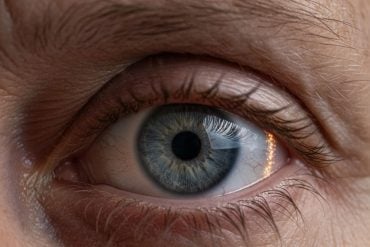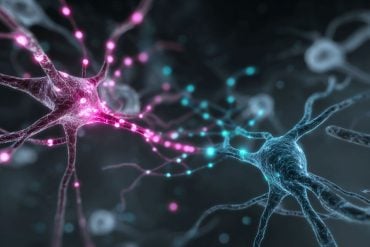Summary: Recent research shows that senescent, or “zombie,” skin cells may accelerate aging throughout the body. When transplanted into a preclinical model, these cells caused senescence to spread to other organs, impairing muscle function and brain health.
This discovery suggests that skin aging could drive broader systemic aging, offering new insights into the connection between skin conditions and overall decline. The study supports anti-aging strategies that address both physical and cognitive health by targeting senescent cells.
Key Facts:
- Senescent skin cells can accelerate aging in other organs and systems.
- The spread of these cells impairs muscle function and brain health.
- The research supports anti-aging approaches that target senescent cells in the skin.
Source: Mayo Clinic
Mayo Clinic researchers have found that senescent cells—non-dividing “zombie” cells—accumulate in the skin as people age and may influence aging in other parts of the body.
Their recent study revealed that transplanting senescent skin cells into a preclinical model revealed that they not only caused that senescence to spread to other tissues but also accelerated physical decline, impaired muscle function and adversely affected brain health. This discovery indicates that senescent cells in the skin could drive broader, systemic aging.

“This discovery is significant because it suggests that senescent cells in the skin—an organ not typically associated with aging, beyond wrinkles—might be driving broader, systemic aging processes.
“These findings could also help explain the link between skin conditions and cognitive decline, offering potential new pathways for addressing both physical and mental deterioration as we age,” says Mayo Clinic researcher João Passos, Ph.D., who is one of the lead authors on the study, published in Aging Cell.
This research also offers support for anti-aging strategies that aim to keep both the body and mind healthier for longer.
“This study suggests that skin senescence may accelerate aging in other organs, highlighting the importance of preventing factors like sun exposure, smoking, alcohol and poor diet that contribute to premature skin aging,” says Ana Catarina Franco, the study’s first author and Mayo Clinic visiting graduate student.
The researchers aim to investigate whether senolytic drugs, originally developed at Mayo Clinic and shown to eliminate senescent cells among people with a high number of senescent cells, can improve overall health when applied topically to the skin.
They also plan to do more research to try to understand the mechanisms by which senescent cells may spread from the skin to other organs.
About this brain aging research news
Author: Ana Catarina Franco
Source: Mayo Clinic
Contact: Ana Catarina Franco – Mayo Clinic
Image: The image is credited to Neuroscience News
Original Research: Open access.
“Senescent cell transplantation into the skin induces age‐related peripheral dysfunction and cognitive decline” by Ana Catarina Franco et al. Aging Cell
Abstract
Senescent cell transplantation into the skin induces age‐related peripheral dysfunction and cognitive decline
Cellular senescence is an established cause of cell and tissue aging. Senescent cells have been shown to increase in multiple organs during aging, including the skin. Here we hypothesized that senescent cells residing in the skin can spread senescence to distant organs, thereby accelerating systemic aging processes.
To explore this hypothesis, we initially observed an increase in several markers of senescence in the skin of aging mice. Subsequently, we conducted experiments wherein senescent fibroblasts were transplanted into the dermis of young mice and assessed various age-associated parameters.
Our findings reveal that the presence of senescent cells in the dermal layer of young mice leads to increased senescence in both proximal and distal host tissues, alongside increased frailty, and impaired musculoskeletal function.
Additionally, there was a significant decline in cognitive function, concomitant with increased expression of senescence-associated markers within the hippocampus brain area.
These results support the concept that the accumulation of senescent cells in the skin can exert remote effects on other organs including the brain, potentially explaining links between skin and brain disorders and diseases and, contributing to physical and cognitive decline associated with aging.







